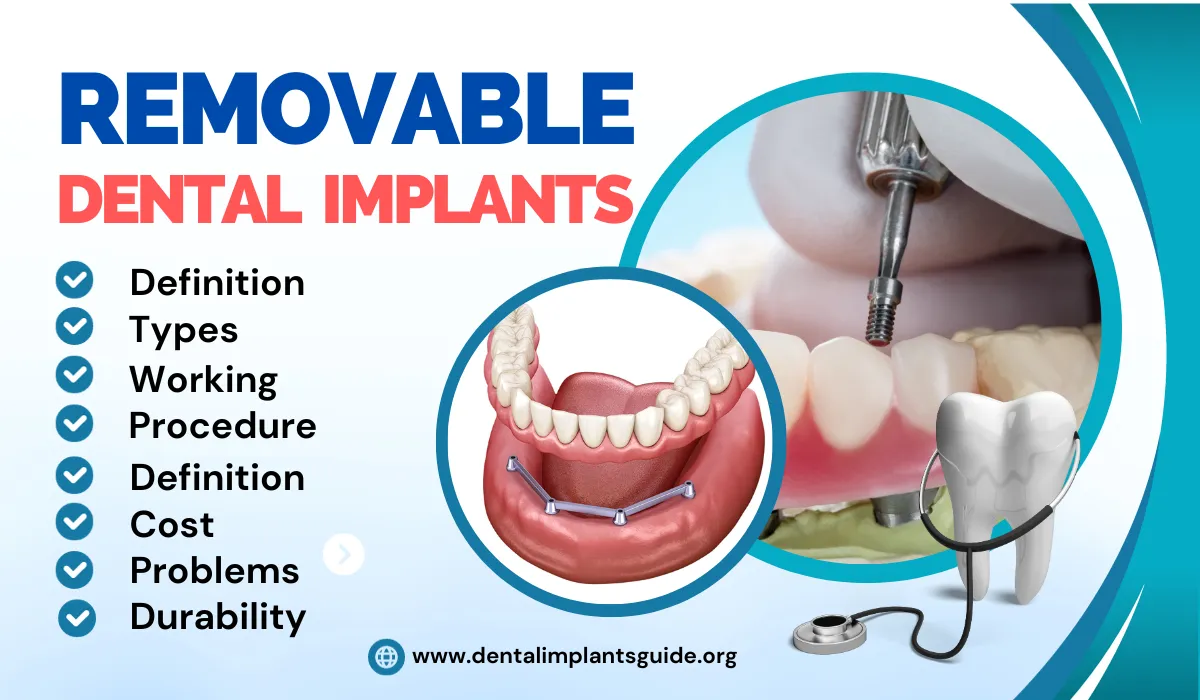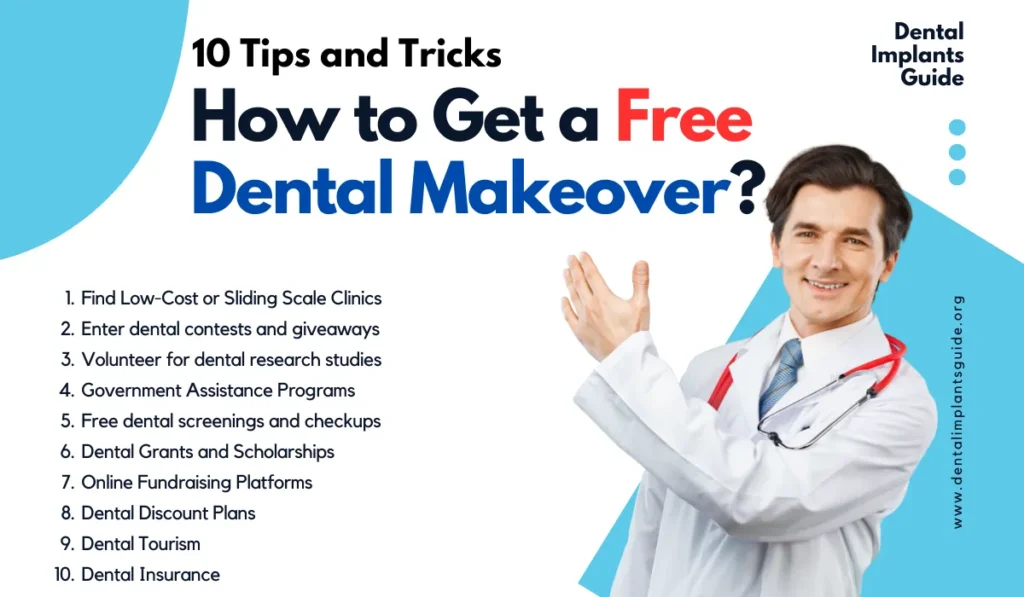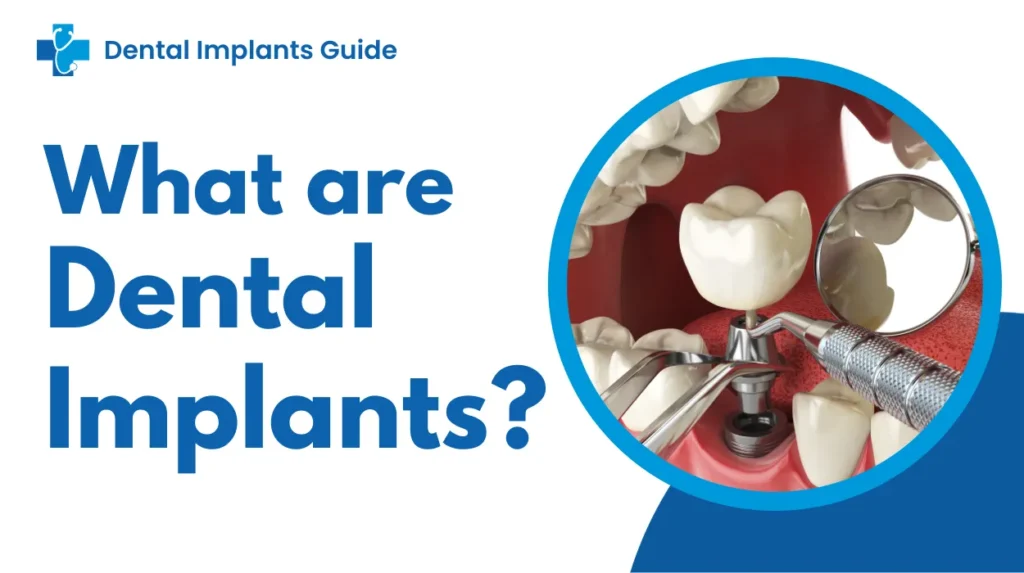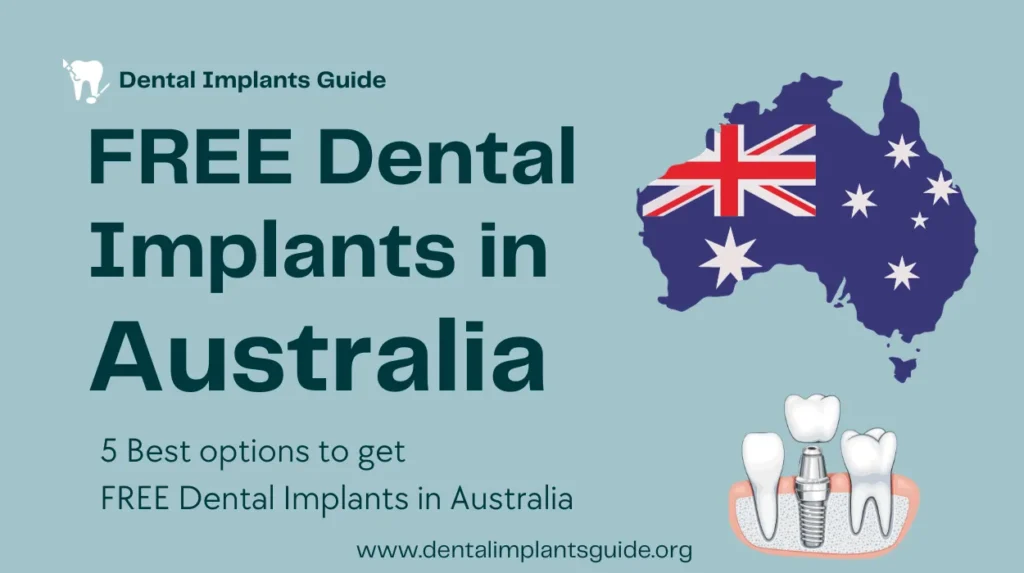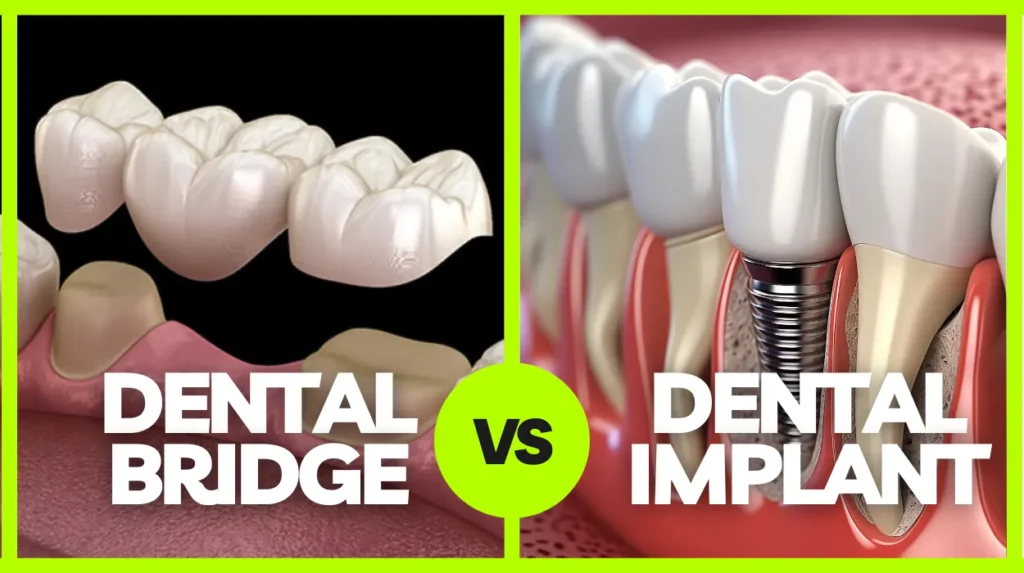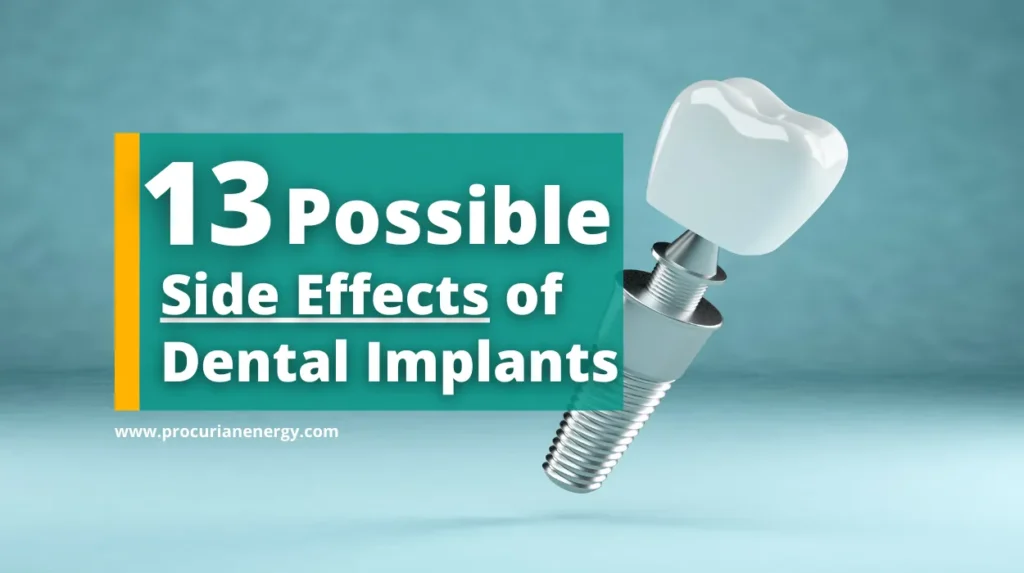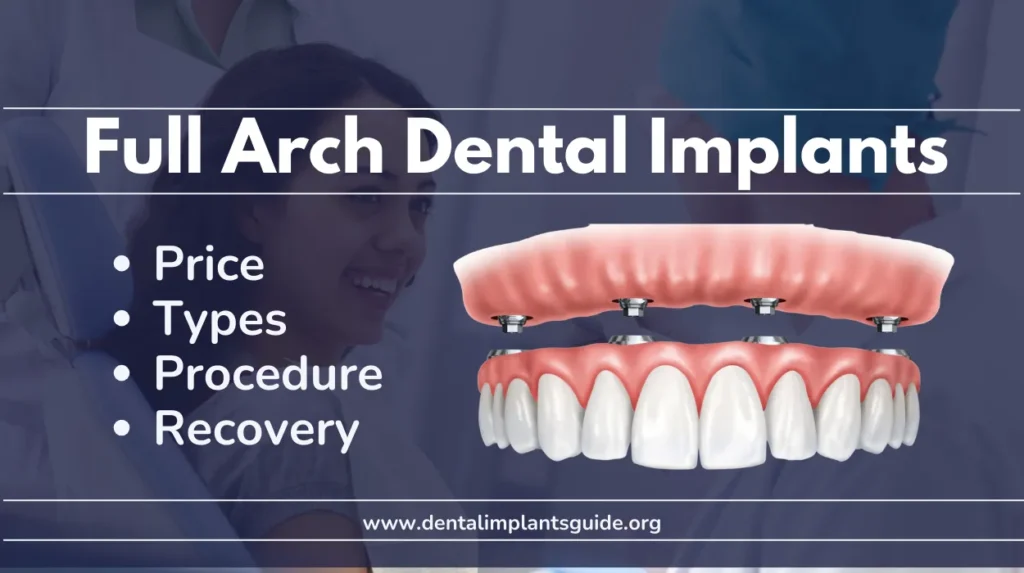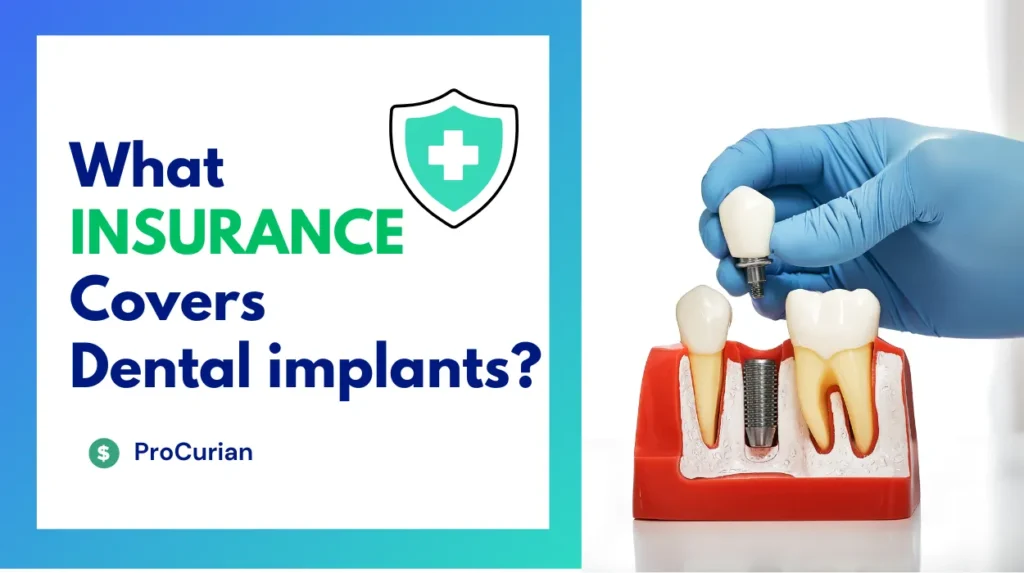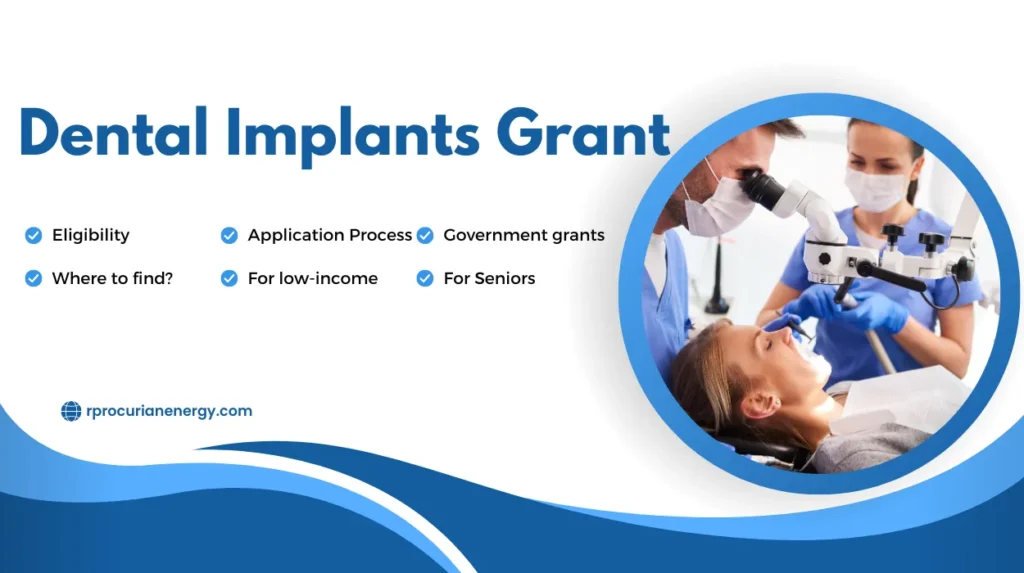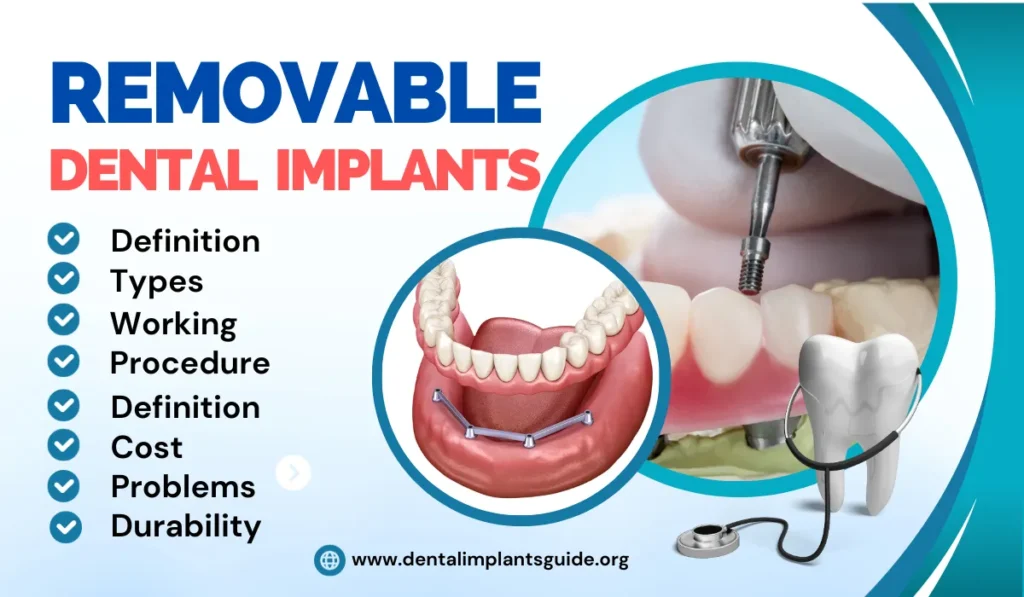
Missing teeth can be a major inconvenience, affecting your ability to eat, speak, and smile with confidence. Removable dental implants may be the best choice for you if you’re looking for a long-term solution to replace missing teeth.
Removable dental implants are a type of dental implant that is designed to be removed and cleaned daily In comparison with traditional dentures, they provide a number of advantages, such as increased stability and retention, improved chewing function, better oral health, and improved appearance.
In this blog post, we will discuss the cost, working principles, benefits, procedure, and care and maintenance of removable dental implants. To help you decide if removable dental implants are the best option for you, we will also give you some additional information.
What Are Removable Dental Implants?
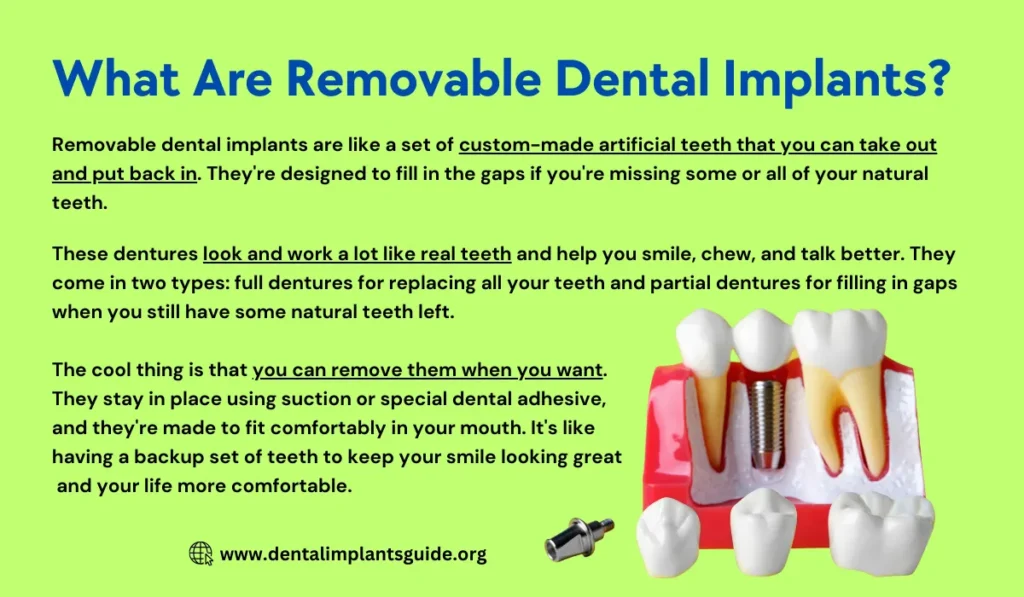
Removable dental implants, also known as removable dentures or overdentures, are a fantastic solution to replace missing teeth. They’re like a set of custom-made artificial teeth that you can take out and put back in. These little wonders can transform your smile and make chewing food a breeze.
Types of Removable Dental Implants
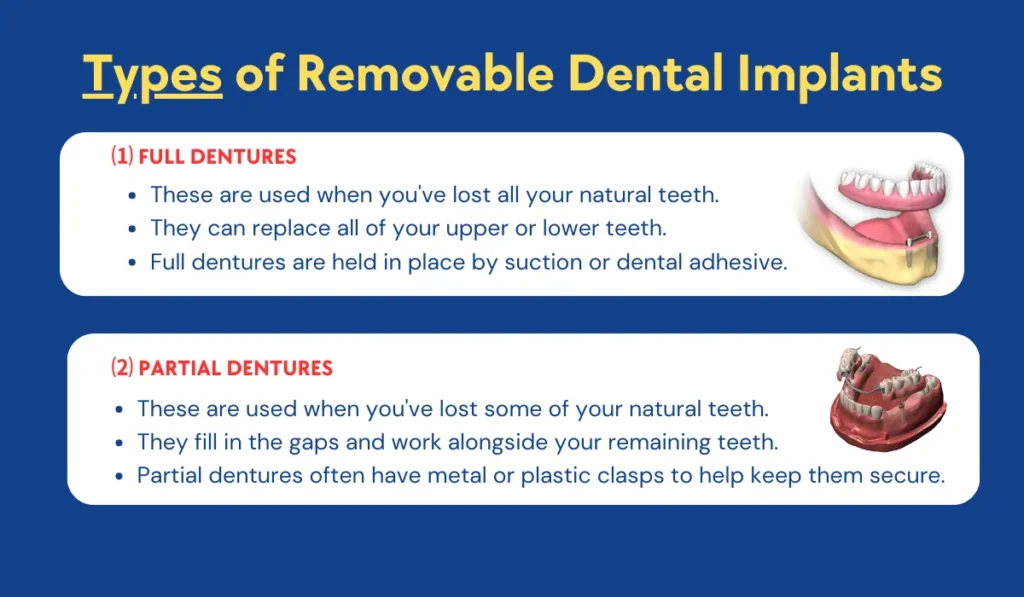
There are two main types of removable dental implants:
⑴ Full Dentures
- These are used when you’ve lost all your natural teeth.
- They can replace all of your upper or lower teeth.
- Full dentures are held in place by suction or dental adhesive.
⑵ Partial Dentures
- These are used when you’ve lost some of your natural teeth.
- They fill in the gaps and work alongside your remaining teeth.
- Partial dentures often have metal or plastic clasps to help keep them secure.
How do removable dental implants work?
Removable dental implants are typically made up of two parts:
- Implants ➜ These are small metal rods that are surgically inserted into the jawbone.
- Overdenture ➜ This is a removable denture that is attached to the implants.
The overdenture can be attached to the implants using a variety of methods, such as clips, magnets, and ball-and-socket attachments.
Even if you remove your overdenture to clean it, the implants stay in your jawbone. The implants can therefore help maintain your jawbone and stop bone loss.
Procedure for getting removable dental implants
The procedure for getting removable dental implants is usually performed in two stages.
Stage 1:
The dental professional will surgically insert the implants into the jawbone in the initial phase. Typically, this procedure is carried out while under local anesthesia.
The dentist will have to wait for the implants to fuse with the bone after they are inserted. The duration of this process may be months.
Stage 2:
The dentist will mount the overdenture on the implants after they have been fused in place. The overdenture will be made specifically for your mouth and requirements.
Cost of removable dental implants
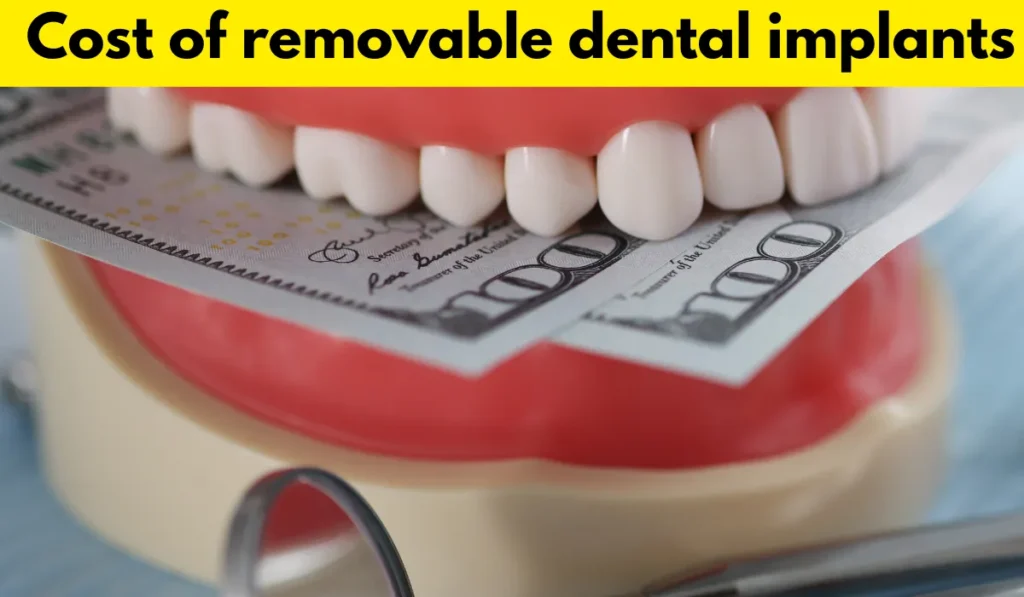
The cost of removable dental implants is lower than that of fixed implants. The cost of removable dental implants can vary depending on factors like the type of implants, materials used, and your location.
| Country | Cost of removable dental implant per implant (USD) |
|---|---|
| United States | $4,000-$8,000 |
| United Kingdom | £3,000-£6,000 |
| Canada | $5,000-$10,000 |
| Australia | AUD 5,000-AUD 10,000 |
| Turkey | $2,000-$4,000 |
| Mexico | $1,500-$3,000 |
Removable vs Non-removable dental implants
| Characteristic | Removable dental implants | Non-removable dental implants |
|---|---|---|
| Can be removed? | Yes | No |
| Stability and retention | Good | Excellent |
| Chewing function | Good | Excellent |
| Oral health | Good | Excellent |
| Appearance | Good | Excellent |
| Cost | Less expensive | More expensive |
| Procedure | Less complex | More complex |
| Recovery time | Shorter | Longer |
| Care and maintenance | More complex | Less complex |
What are the problems with removable dental implants?
Removable dental implants can be a great choice for many people, but there are few problems:
- Sore Spots ➜ Sometimes, your removable dental implants might rub against your gums or the roof of your mouth, causing sore spots. This can be uncomfortable, but your dentist can usually adjust them to fit better.
- Slipping or Moving ➜ Dentures can move or slip around, especially when you’re eating or talking. It can be a bit embarrassing, but using adhesive can help keep them in place.
- Chewing Difficulties ➜ While removable dental implants make eating easier, some folks still have trouble with certain foods, like tough meats or sticky candies. You might need to cut your food into smaller pieces or avoid some items altogether.
- Speech Changes ➜ At first, you might notice changes in your speech. It can take some time to get used to talking with dentures. Practicing and being patient can help you speak more clearly.
- Cleaning Challenges ➜ Cleaning your removable dental implants is important, but it can be a bit of a hassle. You’ll need to remove them and clean them daily. It’s not hard, but it’s an extra step in your daily routine.
- Bone Resorption ➜ Over time, your jawbone can change shape, which may cause your dentures to fit less snugly. Regular check-ups with your dentist can help address this issue.
How long do removable implants last?
With the right maintenance and care, removable dental implants can last a lifetime. The implants themselves are usually made of titanium, a substance that is highly durable.
The removable portion of the implant, the overdenture, is typically made of acrylic or porcelain.
Every 10 to 15 years, overdentures might need to be replaced, but the implants themselves ought to last much longer.
How do you take care of removable implants?
To take care of removable implants, you should:
- Brush and floss your teeth twice a day. This will help to remove plaque and bacteria from your teeth and gums.
- Take out your implants at night and clean them. You can clean your implants by brushing them with toothpaste or soaking them in a denture cleaning solution.
- Rinse your implants with water after each use. This will assist in removing any food debris.
FAQs
What are removable dental implants?
Removable dental implants are a type of dental implant that is designed to be removed and cleaned daily.
How do removable dental implants work?
Removable dental implants are made up of two parts: implants and an overdenture. Implants are small metal rods that are surgically inserted into the jawbone. The overdenture is a removable denture that is attached to the implants.
Who is a candidate for removable dental implants?
Removable dental implants are a good option for people who are missing one or more teeth and who have healthy gums and jawbones.
What is the recovery time for removable dental implant surgery?
The recovery time from removable dental implant surgery is 2 to 3 months.
Do removable dental implants hurt?
When you first get them, you might feel some discomfort, but it usually gets better as you get used to them.
Can I eat with removable dental implants in my mouth?
Yes, you can eat with them, but some foods may be a bit tricky, like really tough or sticky ones.
How do I clean removable dental implants?
You can clean them by taking them out and brushing them. It’s just like taking care of your teeth, but with an extra step.
Can I sleep with removable dental implants in my mouth?
It’s usually better to take them out before sleeping to let your gums rest.
Final Thoughts
Removable dental implants are a fantastic way to bring back your smile, eat your favorite foods comfortably, and boost your confidence. They’re like your custom-made tooth buddies that you can pop in and out. They come in two types, full and partial, depending on your needs.
Getting them is a simple process that involves visiting your dentist, taking impressions, and a few fittings. And remember, taking good care of your removable dental implants isn’t a tough job; it’s just a regular part of your daily routine.
The cost can vary, but the benefits they offer are truly worth it. A better smile, improved chewing, and clearer speech are just a few of the advantages.
